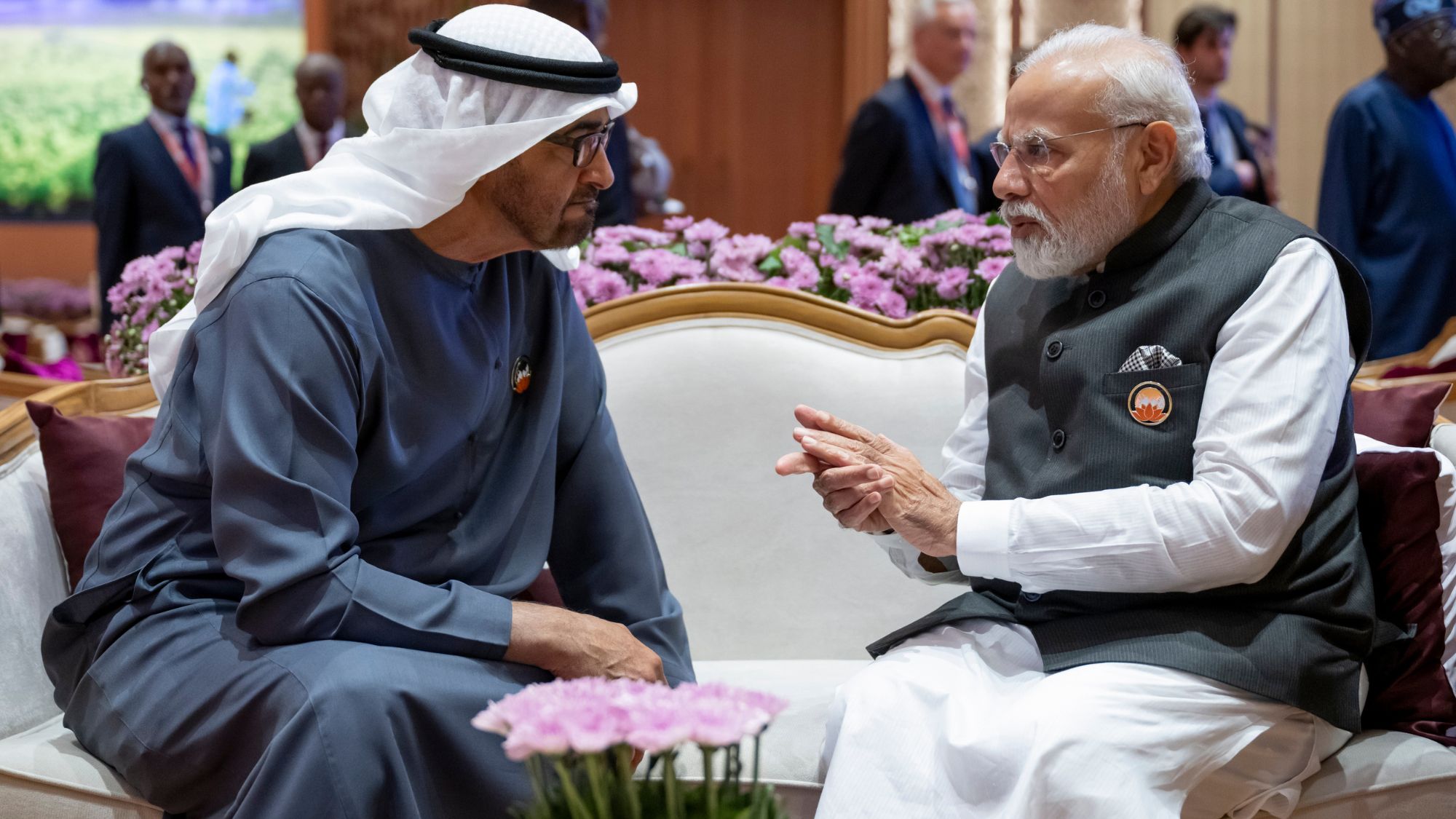Abu Dhabi, UAE–The UAE Ministry of Investment has signed three memorandums of understanding (MoUs) with India, setting out frameworks for the expansion of bilateral investment cooperation in the renewable energy, food processing and healthcare sectors.
The agreements were signed by the respective Indian ministries, underscoring the UAE’s strong commitment to supporting the continued development of India’s prospering economy, which is estimated to grow by 7.3 percent during the current fiscal year.
Economic engagement between the UAE and India is multidimensional and rapidly growing, underpinned by a Comprehensive Economic Partnership Agreement (CEPA) between the two nations which came into effect in May 2022. Bilateral trade between the UAE and India amounted to US$84.5 billion between April 2022 and March 2023 and is expected to increase to US$100 billion by 2027.
The UAE is also the seventh-largest investor in India, with an estimated investment of US$18 billion in 2023. The agreement on renewable energy was signed by Mohamed Hassan Al Suwaidi, UAE Minister of Investment; and Dr. Subrahmanyam Jaishankar, External Affairs Minister of India, on behalf of the Ministry of New and Renewable Energy.
Investment cooperation in renewable energy projects to be implemented in India under the agreement can reach up to 60 gigawatts.
In support of global efforts to tackle climate change, a transition to clean energy is a priority for India. The country aims to achieve net-zero emissions by 2070 and meet 50 percent of its electricity requirements from renewable energy sources by 2030.
As a result, there are plans to increase India’s renewable energy capacity to 500 gigawatts, reduce the emissions intensity of its economy by 45 percent and reduce one billion tons of carbon dioxide.
The Indian government estimates that the country’s shift onto a low-carbon path will require more than US$10 trillion of new investments by 2070.
The MoU between the UAE and India focuses on forging effective collaboration by building relationships between public and private organizations. The agreement additionally proposes the implementation of incentives to support pertinent initiatives and aims to facilitate the exchange of knowledge.
The agreement for investment cooperation in food park development was signed by Mohamed Hassan Al Suwaidi, UAE Minister of Investment; and Pashupati Kumar Paras, Minister of Food Processing Industries of India
Under the agreement, the parties are committed to developing food park projects and driving other initiatives in the food processing sector that contribute to global food security. The investment cooperation aims to harness cutting-edge agritech, clean tech, and renewable energy solutions, symbolising a significant partnership between the UAE and India.
The MoU centres on establishing robust and efficient collaboration through the development of bilateral relationships between public and private organisations. The agreement also proposes introducing incentives to bolster relevant initiatives and seeks to facilitate the exchange of knowledge.
Food processing is considered a “sunrise sector” in India, which is boosted by the Mega Food Park Scheme, a key government initiative launched in 2008 aimed at providing modern infrastructure facilities for food processing along the value chain.
The Scheme provides financial support to public and private entities in setting up clusters of food processing units, known as “food parks”, which bring farmers, processors, and retailers together and utilise advanced climate technology to minimise waste, conserve water and maximise crop yields. India currently has 24 operational mega food parks, with numerous others at various stages of implementation.
India’s food processing sector is one of the largest in the world, developing at an average annual growth rate of 8.3 percent in the past five years. The output of the sector is expected to reach US$535 billion by 2025/2026. The industry is expected to play a vital role in the overall growth of the country’s economy.
The agreement on investment cooperation in innovative healthcare projects was signed by Mohamed Hassan Al Suwaidi, UAE Minister of Investment; and Dr. Mansukh Mandaviya, Minister of Health and Family Welfare of India.
The MoU lays special emphasis on precision health, i.e., personalised healthcare based on a person’s unique genetic, genomic, or biological composition to help achieve well-being and optimal health. The development of a genomic centre of excellence is being evaluated as one of the possible projects under the MoU.
The healthcare sector in India is estimated to be around US$372 billion. Factors such as affordable treatment, advanced technology, a wide range of specialties as well as access to international markets have accelerated the growth of this industry.
As the most populous country in the world, India has made affordable, accessible and increasingly innovative healthcare a priority, facilitated by increased public health expenditure year-on-year.








